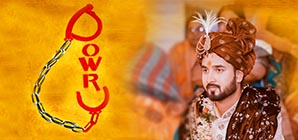Women: Victims of Domestic violence
Posted On : November 27, 2019

Table of Contents
Domestic violence essentially is violent acts that a family or household is guilty of committing or it could be a solo act by a family member or a household against each other. In the ambit of domestic violence, the perpetrators are a child abuser as well as a wife-beater.
Any sort of physical injury may be caused to a family member or to a member of a household owing to some form of domestic violence. Domestic violence by definition includes all intended acts of physical, sexual, psychological or economic abuse.
Anyone regardless of age, gender, the financial or economic background can be victims of domestic violence. The behavior pattern of domestic violence includes attempts of scaring, physically harming, or controlling a partner so on and so forth. Domestic violence isn’t limited to physical violence rather it extends to mental abuse as well.
Types of domestic violence
Physical Abuse: Physical hostilities are harmful behavioral patterns akin to physical abuse and aggression of all forms.
Sexual Abuse: What it refers to is the sexual exploitation by coercing an unwilling partner to get into a sexual relationship. This sort of sexual harassment encompasses both verbal and physical torture including reproductive rights and forced abortions.
Emotional Abuse: Any behavioral pattern exploiting someone’s weakness, insecurity or character is essentially emotional abuse happening during the abusive relationship characterized by unabated criticism, name-calling, embarrassing, and teasing.
Call 7604047601 for consultation with registered expert domestic violence lawyers on Vidhikarya.
























